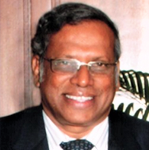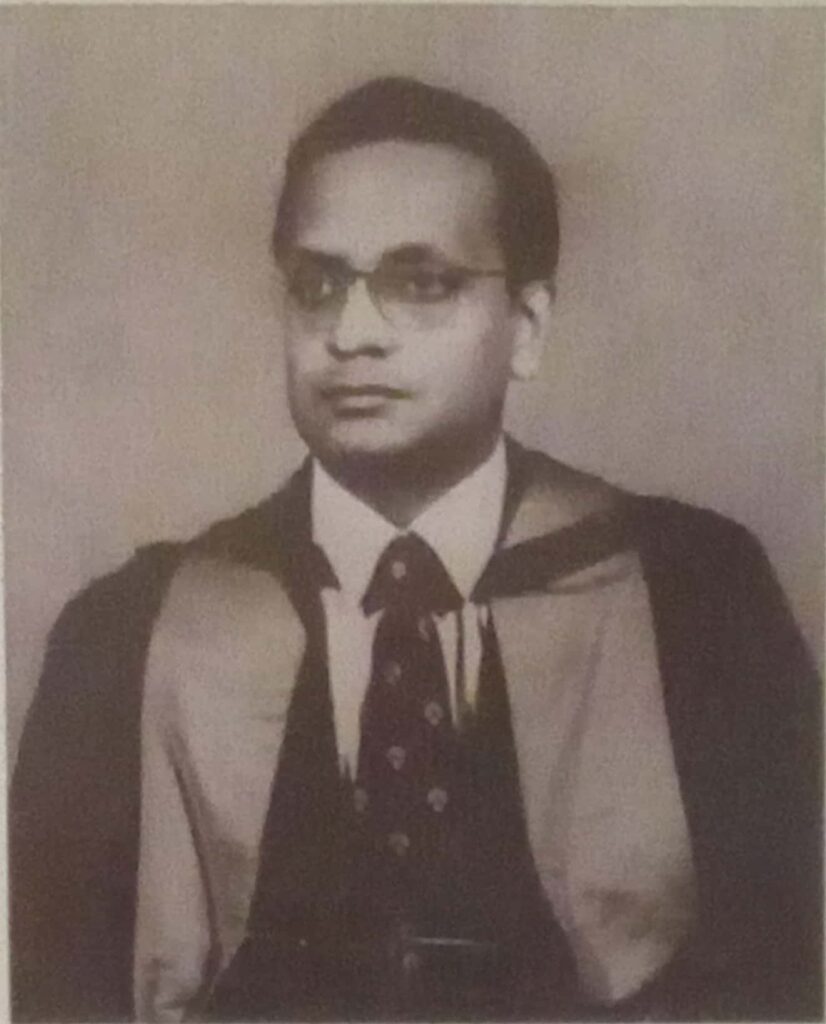 Prof. D. A. Tantrigoda
Prof. D. A. Tantrigoda
Emeritus Professor
B.Sc. (Cey.), M.Sc., Ph.D. (Durham)
Email: dhammika@tantrigoda.net
Prof. Dhammika A. Tantrigoda joined the Vidyodaya Campus of the University of Sri Lanka (presently the University of Sri Jayewardenepura) as a Probationary Assistant Lecturer after successfully completing his BSc Special Degree in Physics from the University of Ceylon, Peradeniya in 1974. He retired from the active university service in 2015 serving the Sri Jayewardenepura University for a period of 41 years. At the time of his retirement, he held the position of Senior Professor of Physics. In addition to teaching and research, he held the positions of Head, Department of Physics, Dean, Faculty of Graduate Studies and served on the Council of the University for almost ten years. He is the present Chancellor of the Open University of Sri Lanka.
Prof. Tantrigoda has earned a reputation as an active researcher and effective teacher. He pioneered teaching and research in Solid Earth Geophysics in Sri Lanka. His research has immensely contributed towards our understanding of the shallow subsurface structure of the Earth over Sri Lanka and the nearby Indian Ocean region. In view of the relevance and importance of his research to the country, he was awarded the National Science Foundation Merit Award for Marine Sciences in 2005 and National Science and Technology Award in 2008.
He continued this study after his retirement from the university with the Ministry of Foreign Affairs and was successful in establishing the Outer Edge of the Continental Margin of Sri Lanka according to the United Nations Convention on the Law of the Sea. This work has led to an increase in the sea-bed area belonging to Sri Lanka by one hundred per cent or more. In recognition of Prof. Tantrigoda’s contribution to research, the National Academy of Science elected him as a Fellow in 1996. He had also been a Fellow of the Royal Astronomical Society (FRAS) from 1994 to 2004. In 2011, Prof. Tantrigoda was elected as the General President of the Sri Lanka Association for the Advancement of Science.
Prof. Tantrigoda’s contribution was not confined only to academia. He held the position of Chairman, National Science and Technology Commission (NASTEC) from 2013 to 2016. The National Science and Technology Framework, a comprehensive document that provides helpful guidance for scientists and technologists to align their research and development activities towards the national development agenda was produced during his tenure as chairman. He has also served the Arthur C. Clarke Institute of Modern Technologies as its Chairman and the National Institute of Fundamental Studies, Atomic Energy Authority, Postgraduate Institute of Management (PIM) and the Sri Lanka Accreditation Board as a member of their governing councils and as a member of the National Education Commission.
Late Prof. P. C. B. Fernando
Emeritus Professor
B.Sc. (Cey.), Ph.D. (Cantab.)
Prof. PCB Fernando joined the Vidyodaya University of Ceylon (presently the University of Sri Jayewardenepura) in 1967 as its Founder Professor of Physics. He remained in the Physics Department of the University until his retirement in 1995 after serving almost three decades, counting forty years as a university teacher. He directed the Physics Department as its head for almost ten years and gave leadership to the Faculty of Science (presently the Faculty of Applied Sciences) from 1971 to 1974 in its formative years when significant and rapid expansions of infrastructure in building, equipment and staff took place, in a difficult and sometimes even hostile environment.
Professor Fernando’s contribution to the Physics Department per se took the form of lecturing in almost all branches of the subject to undergraduates at different stages while administering a department at its stage of infancy. Some important innovations he effected with his staff were the introduction of a substantial component of practical Electronics and research type projects at undergraduate level, which were not common at that time. Towards making Physics courses more job oriented, a two-year professional course in optometry was initiated by Prof. Fernando in 1971. Today this course has been elevated to a fully-fledged degree program conducted by the newly established Faculty of Allied Health Sciences of the university with support and blessings of the Physics Department.
Prof. Fernando belongs to the pioneer group of physicists who conducted research in “Geomagnetic micropulsations of the Earth’s magnetic field” in Sri Lanka. There are several advanced textbooks in the field in which Prof. Fernando’s and his co-workers’ contributions have been highlighted and given pride of place. Prof. Fernando continued his research successfully at the University of California, Berkeley while on sabbatical leave from the university. Details of his research contribution can be found in prestigious journals such as the Philosophical Magazine, Journal of Geophysical Research and Space Science. The National Academy of Science elected him as a Fellow in 1981 in recognition of his research contribution. Professor Fernando strongly believed that the academia should work closely with the industry and utilize its specialized knowledge to help solve the problems encountered by the industry. Working along this line, he successfully solved a series difficult technical problem which hindered the progress of the Ceylon Steel Corporation winning the prestigious UNESCO-CAAS Scientist of the Year Award.
Prof. Fernando’s contribution outside the university and at the national level has been mainly via his saving on statutory governing boards of science and technology institutes. He served the Ceylon Institute of Industrial and Scientific Research (presently ITI) as the Chairman. One of the most significant contributions that he made during his tenure is the introduction of a rigorous merit-based evaluation scheme for the research staff. He also had been a member of the governing councils of the National Science Council (presently NSF) and the Atomic Energy Authority. He also served on the Founding Committee and the Academic Council of the Institute of Fundamental Studies.


